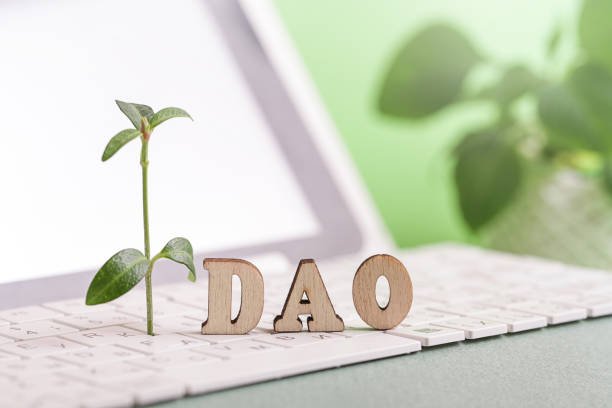The Overview of DAO, Its Importance, Example and How To Participate
There are a lot of questions about what DAO is by some of my followers. In this article, I will share an overview of DAO, its features and some examples. Follow, me closely.

Credit: istockphoto by Liliya Filakhtova
What is DAO?
According to Cointelegraph, DAO is an entity with no central leadership. It is called a Decentralized Autonomous organization and in this organization, all decisions are made from the bottom-up, which is governed by a community organized around a specific set of rules enforced on a blockchain.
When looking at a DAO as an internet-native organization, being a member of such an organization means anything built around it requires all the member's approval. For example, a treasury built around it is only accessible with the approval of its members. Decisions are made via proposals the group votes on during a specified period.
DAO Features
Before entering into DAO features, understand that your participation in a DAO is through the ownership of a token, though there are other ways of participation.
All DAOs rely heavily on smart contracts which is a logically coded agreements that dictate decision-making based on underlying activity on a blockchain.
For example in the above statement, a project may decide to reduce the circulating supply of the token or set to burn a select amount of reserve tokens, a code for these activities will be released and members will cast their vote on it.
DAO features are Voting and Governance which some projects will require members to stake t heir holding before they can contribute while others only need you to hold their token.
For example, DIADAO is a cross-chain oracle for Web3 and allows their community members to hold DIA tokens only and those that voted in the last proposal were airdrop the same quantity of DIA token as revealed in this Tweet. We can see projects that have DAO as part of its ecosystem like Dogechain releasing Dogegree a decentralized governance platform dedicated to Dogechain, making it easy for the Dogechain community to create and vote on proposals, with veDC, the governance token of Dogechain.
Advantages of DAO
- Community: DAO allows people globally to seamlessly come together to build a single vision. With just an internet connection, token holders can interact with other owners wherever they may live.
- Decentralization: All decisions are made by a collection of individuals, unlike the experience we all have in a central authority that is often vastly outnumbered by their peers. There is no CEO or board of directors.
- Publicity: Every action is publicly executed and it's visible on the blockchain.
- Participation: DAO is not about how big your portfolio is, everyone holding the project token can cast their vote. Users can act in ways they feel are best for them, as their vote and their decisions will be made publicly viewable.
Now, Carib DAO is building a DAO. In case you are new to the project, is a project that is building the future of the Caribbean, block by block. So far, the project is all about education, creating opportunities for community members to earn especially in Web3 space. There are a lot of activities that open fair rewards to all participants.
While this is ongoing, the team continue to work their way to the launch of the DAO community. You can study the project Litepaper for better understanding.
For anything that has an advantage there lies a disadvantage. So far with DAO, the notable disadvantage I have seen is lack of education. Many by book understand DAO but in engagement and interaction, it's difficult because they have not practicalized what they read. Here comes education. The more we can share experiences, the more people embrace the ecosystem of DAO.
I will share more about DAO in my next article, revealing how to make money in the DAO community.
